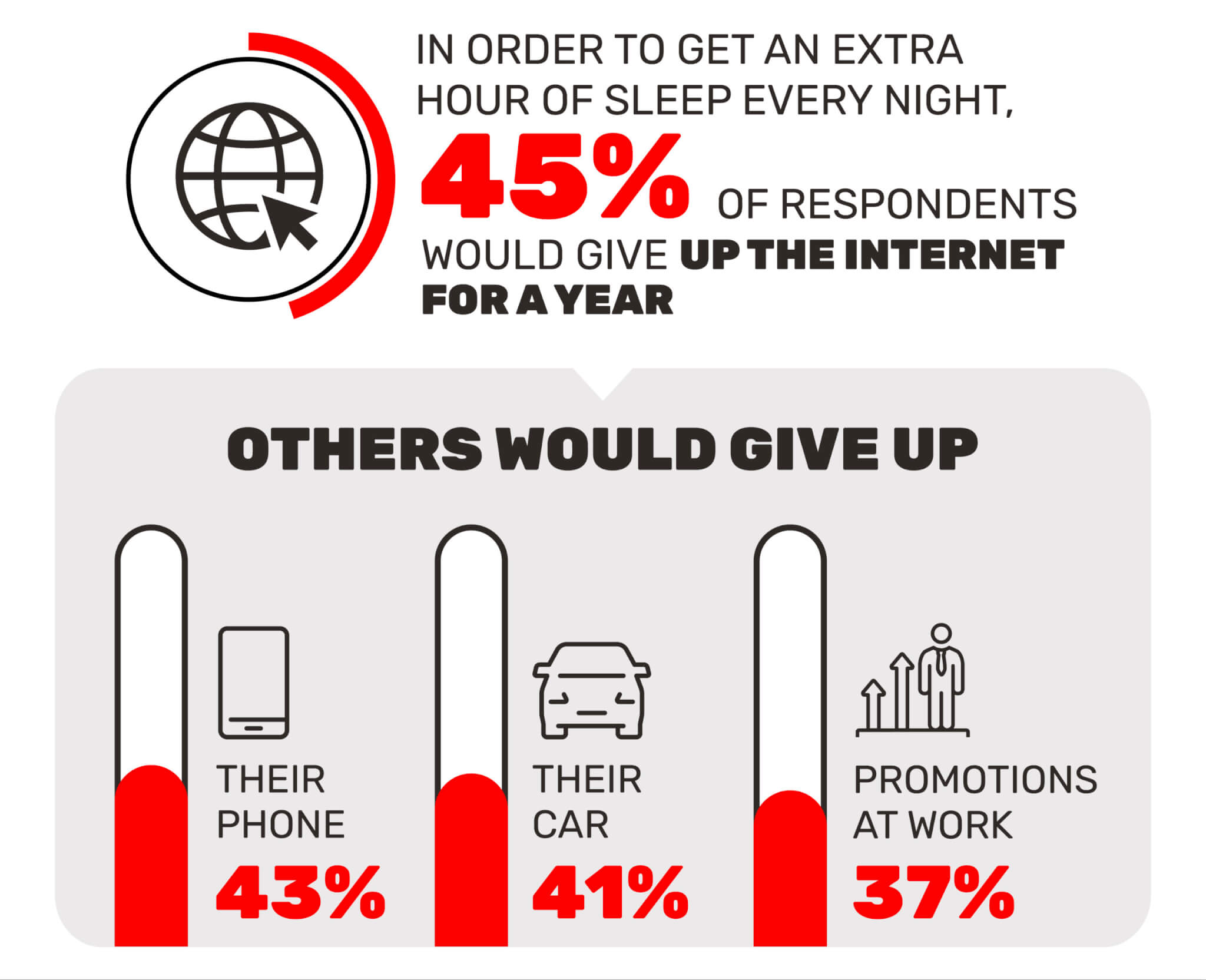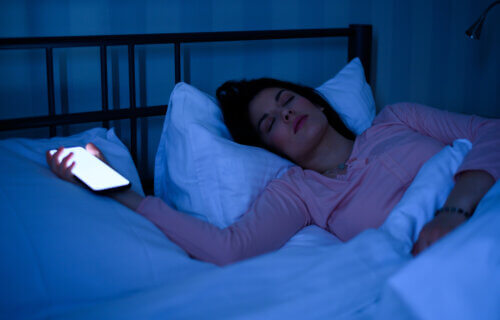NEW YORK — How important is a good night’s rest to you? Enough that you’d cut off the internet for a year, giving up access to social media, online shopping, and all your favorite websites? A new survey reveals almost half of Americans would take that offer if it meant getting high-quality sleep every night in return.
Yes, this new poll of 2,000 adults shows that 45% would be willing to give up the internet for a full 365 days to help their sleep. Those aren’t the only extremes people would take. Others would give up their phone (43%), their car (41%), and even getting a promotion at work (37%)!
Why the desperate need for an extra hour of sleep? The survey reveals that 48% feel tired earlier and 41% go to bed earlier in the evening when the sun sets earlier in the day. Nearly four in five (78%) claim they can even tell when their circadian rhythm — defined as physical, mental, and behavioral changes that follow a 24-hour cycle — isn’t where it normally should be.
Winter sleep woes
Commissioned by Mattress Firm and conducted by OnePoll, the survey shows six in 10 sleep routines typically feel different during the winter than in other seasons. A quarter of people have the most difficulty waking up during the winter; more so than any other season.
Over half (56%) swear their personalities change with the seasons, as do 49% who claim their daily habits change. While spring was found most likely to make people feel happy (58%), summer causes people to feel curious (29%) and content (27%) with themselves. By contrast, people say they feel especially tired (21%) or sad (20%) in the winter.

Autumn was a catalyst of personality change for many — leaving people feeling angry (20%) and sad (18%).
During the holiday season in particular, respondents say that they were more likely to cancel plans with friends to stay in bed (48%), sleep (40%), and drink alcohol (37%).
“It’s truly remarkable how keenly attuned we are to the impact of circadian rhythm disruptions, particularly when they stem from the change in seasons and length of daylight,” says spokesperson Dr. Jade Wu, Sleep Advisor at Mattress Firm, in a statement. “Our bodies’ acute awareness of these changes serves as a reminder of the intricate connection between our internal clocks and the external environment.”
Many people believe they have SAD
In the winter months, 57% of respondents recall having experienced “winter blues” — the feeling of despair or general upset caused by winter. Four in 10 respondents have been diagnosed with seasonal affective disorder (SAD). And while 45% say they haven’t been diagnosed with SAD, 53% of them still believe they have the disorder.
Winter was found to cause respondents feelings of apathy (32%), general discontent (32%), loneliness (29%), mood swings (28%), and loss of interest (26%). And when sleeping, many find themselves burying under blankets (49%), sleeping for a shorter period of time (48%) or tossing and turning (48%).
“Winter often comes with a gloomy feeling because it’s a prolonged lull in daytime activity levels, which can also make your nights less restful,” adds Wu. “One of the best things you can do for your body is to get active during the day and give it a relaxing environment for sleep.”
Survey methodology:
This random double-opt-in survey of 2,000 general population Americans was commissioned by Mattress Firm between Sept. 26 and Sept. 29, 2023. It was conducted by market research company OnePoll, whose team members are members of the Market Research Society and have corporate membership to the American Association for Public Opinion Research (AAPOR) and the European Society for Opinion and Marketing Research (ESOMAR).
